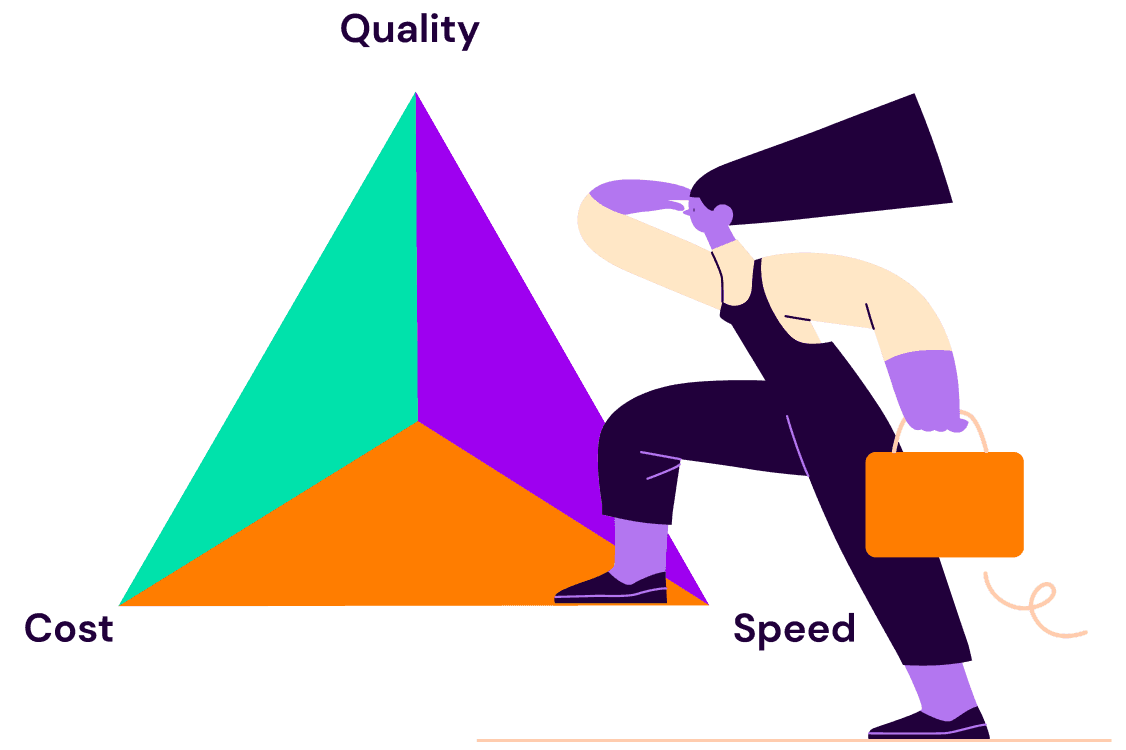
Back to blogs

Recruiting Toolbox’s John Vlastelica on Leading Holistically in a World of HR Silos
SeekOut's Talent Visionaries series features innovative leaders and their extraordinary work in creating and scaling high-performing teams. The personal philosophies and invaluable insights of these workplace champions offer new perspectives in an ever-evolving talent landscape.
John Vlastelica is the CEO and Founder of Recruiting Toolbox, a global recruitment consulting and training firm that helps companies of all sizes improve their in-house recruiting capabilities. John is passionate about elevating recruiting teams to become key drivers in overall business success. With over 30 years of experience, including corporate recruiting leadership roles at Amazon, Expedia, and AT&T, John is a frequent speaker at major industry events.
On running to the fire
A topic I talk a lot about is how to transition from being a transactional recruiter to more of a talent advisor. If you want to get better at doing pushups, you do more pushups. Similarly, if you want to excel as a talent advisor, you need to engage with challenging hiring managers. You want to “run to the fire.” It’s an especially helpful attitude for a young professional.
Early in your career, there's a tendency to seek the easy work. But I’ve found that exposure to tough hiring managers with high expectations will make you smarter and better at your job. The fastest way to move from being a transactional recruiter to a talent advisor is to seek out challenges.
On knowing the business
Today, most hiring managers and executives share that the number one thing they’re looking for in their recruiting teams is curiosity about the business. They want their recruiters to understand how the roles they’re recruiting for will support their business goals.
How can you do that? Well, to better understand the business, I’ve joined sales teams on prospect calls, traveled with field engineers, and even read the same technical magazines as my hiring managers. Although I might have only understood 20% of it, I gained a sense of what the engineers cared about and how my recruiting work fit into the bigger picture.
One of my greatest shining achievements was during a phone screen with a software engineer when I was in my 20s. About 20 minutes into the interview, they asked, “Wait, are you the hiring manager or the recruiter? You're asking me questions as if you actually know what software engineers do.” I wasn’t pretending to be someone I was not—but I was proud that I genuinely understood their work.
So, I recommend going beyond the keywords in a job description. Sit with the teams you recruit for and ask the hiring manager why a technology or certification is needed. Compare your job ads to the job ads of your competitors to see what’s similar and different about the work and requirements, and then find out why it’s different. You don’t have to know what P&L is or take a finance class, but there is immense value in understanding what people do in the jobs you’re hiring for. You’ll stand out as a recruiter because you can ask better questions, influence candidates and hiring managers more effectively, and show up as a credible leader in conversations.
On holistic TA and opportunities to lead
The movement toward holistic thinking in TA is a big step forward. There are many areas in HR that have a huge impact on talent acquisition, and the days of “not my job” are over for TA leaders who want to drive talent strategy.
One example is onboarding. If onboarding is poor, your hiring managers will pursue more of a “hit the ground running” ideal candidate profile because they need someone with limited ramp time. However, if onboarding is good, it can help you widen the aperture of the role and influence the hiring manager to consider a “hit the ground learning” candidate profile instead for some of those required skills. This is a game changer as it opens up the talent pools.
I’d love to see more recruiters talk to hiring managers in the req kickoff meeting about their onboarding plans. Not that TA should own onboarding or that recruiters should build out onboarding plans, but talking about it and leveraging some teachable moments with the hiring manager is key to hiring hard-to-recruit or otherwise unaffordable talent.
Many of my friends in TA leadership roles are actively volunteering to take on responsibilities outside of what encompasses traditional talent acquisition. They’re raising their hands to lead onboarding and internal mobility initiatives, which are often in the realm of talent management.
On the evolving perspective of internal mobility
How we think about internal mobility is also evolving. For most of my 30-year career, I was recognized—even rewarded—for retaining staff on my team. I was awarded for hoarding. Now, organizations are starting to reward people for being net exporters of talent, where leaders provide more career coaching and support for talent on their teams to help them pursue other roles within the company.
I want to live in a world where every hire is a company hire and get rid of the hoarding and poaching mindset. To do that, we need to rethink our dated policies around internal mobility and ask ourselves if our approaches encourage talent to either leave our companies or transfer within our organizations. For example, attrition can happen when we require the candidate’s current manager to be notified when interviewing for an internal role or we don’t pay an internal transfer a market-appropriate salary.
On AI advancements and what it means for recruiting
Applicants can already optimize their resumes to the job description using AI. A candidate can be on a Zoom interview with AI on their phone, listening and prompting them on how to respond. What will the world be like when candidates can fake their way through assessments with AI? Are we going to try to ban candidates from using AI like teachers tried to ban calculators in the 1960s and ‘70s? And if we decide to embrace it and encourage it, how will we make it fair when some candidates have access and some don’t? After all, many candidates will have access to AI once they start the job, just like Google or Wikipedia. And how is that different from candidates who have career coaches and resume writers and access to recruiters who prepare them for interviews versus candidates who have none of that?
The bigger issue, I think, will be identity verification. How will we know that the person who applied and interviewed— maybe even got the offer— is one, a real person or two, the same person who will show up to new hire orientation? Will we go old school and require candidates to do in-person interviews with no technology, not even an Apple Watch? I know professors and teachers are asking these questions now as they try to evaluate students.
So, what does AI mean for recruiters? I think the transactional, process-oriented recruiters hiring with a “post-n-route" sourcing approach will be automated out of jobs, and the true talent advisor recruiters who have strong relationship-building, influencing, listening, and selling skills will thrive. AI will become a productivity tool and recruiters will differentiate themselves based on soft skills with hiring managers and candidates.
On must-read books for HR leaders
“Caste: The Origins of Our Discontents” by Isabel Wilkerson is an eye-opening read on understanding race and socio-economic status through history, power dynamics, and cultural differences.
“Love ‘Em Or Lose ‘Em: Getting Good People to Stay” by Beverly L. Kaye and Sharon Jordan-Evans is all about retention. It’s won multiple awards and has had a huge impact on me.
“Grit: The Power of Passion and Perseverance” by Angela Duckworth is fantastic if you're working on shaping your competencies or reading up on interview training or interview guides. I think it's important to understand the role that grit plays in success.
“Range: Why Generalists Triumph in a Specialized World” by David Epstein is really about the case for generalists over specialists. We learn that innovation rarely comes from those with PhDs who are deep in one specialty, but from someone who sees a connection to a problem from another area. It's an interesting read, especially now when we’re evaluating skills over pedigree—which I'm here for. It’s shaped my thinking on how we select, interview, and hire the right candidates.
Additional resources from John
See us in action
Learn how SeekOut unifies people data to help organizations reach their talent goals
Request a demo



